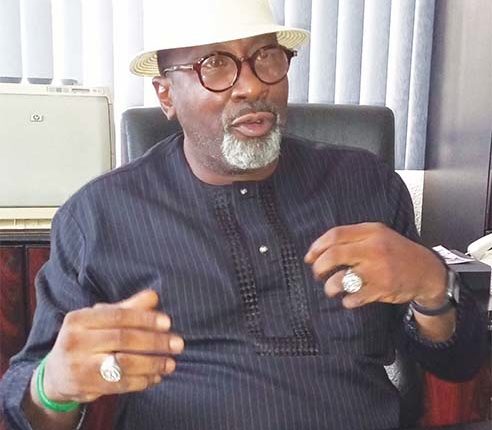NLC must find a middle ground between the advancement of the Nigerian economy and their own ego.
By Abayomi Odunowo.
First and foremost, it is crucial to understand the significance of the issue of minimum wage in any country. The minimum wage serves as a baseline for ensuring that workers are able to afford a decent standard of living based on the current economic conditions. In many developed countries, the minimum wage is regularly reviewed and adjusted to reflect the changing cost of living. However, in Nigeria, this practice is not as common, leading to disparities between wages and the actual cost of living.
To address this issue, it is essential to establish a system where Nigerian workers’ salaries are reviewed every two years to align with market realities. This would ensure that workers are fairly compensated and can meet their basic needs. While labor unions may advocate for more frequent wage reviews, it is important for all parties to approach this issue with reason and objectivity.
It is evident that Nigeria is currently facing numerous challenges, and the government’s focus is on stabilizing the economy and addressing pressing issues. Given this context, it may not be the right time for labor unions to demand significant wage increases that could strain the economy further. It is essential for all stakeholders to consider the broader implications of wage adjustments and work towards a sustainable solution that benefits both workers and the economy as a whole.
By implementing regular wage reviews based on market realities, Nigeria can ensure that workers are fairly compensated and able to meet their basic needs. This can contribute to improved living standards and economic stability in the long run. It is crucial for all parties to approach this issue with pragmatism and collaboration to achieve a fair and sustainable solution for workers across the country.
The issue of minimum wage in Nigeria is a critical one that requires attention and action. By establishing a system for regular wage reviews based on market realities, the country can ensure that workers are fairly compensated and able to afford a decent standard of living. It is essential for all stakeholders to work together towards a sustainable solution that benefits both workers and the economy as a whole.
In the ongoing debate over minimum wage in Nigeria, it is crucial for the Labour party to take a proactive approach in order to achieve a sustainable and fair resolution. What I believe Labour should actually do is go away with a win-win situation by agreeing on a reasonable minimum wage range, such as N80,000 – N85,000, and establish a formula and process for future reviews.
One of the main challenges faced in minimum wage negotiations is the lack of a clear and structured process for regular reviews. By implementing a formula-based approach, Labour can ensure that minimum wage adjustments are made systematically every two years without the need for prolonged negotiations and potential government backtracking. This would provide stability and predictability for both workers and employers, and prevent the cycle of disputes that often arise when agreements are not honored.
Additionally, it is important for Labour to focus on the unique context of the Nigerian economy when determining minimum wage rates. Comparing minimum wages with those of other countries without considering local economic factors can lead to unrealistic expectations and hinder progress. It is essential to compare “apples to apples” and take into account the specific challenges and opportunities present in Nigeria.
Furthermore, it is crucial for Labour to consider the potential consequences of any drastic minimum wage increases. While raising the minimum wage can benefit workers, it can also have negative effects on businesses and the overall economy if not done in a sustainable manner. Labour must strike a balance between advocating for fair wages and ensuring that economic stability is maintained.
Labour must take a proactive and strategic approach to minimum wage negotiations in order to achieve a sustainable and fair resolution. By establishing a clear formula and process for regular reviews, Labour can avoid prolonged disputes and ensure that minimum wage adjustments are made in a timely and predictable manner. Additionally, it is essential to consider the unique context of the Nigerian economy and avoid unrealistic comparisons with other countries. By taking these factors into account, Labour can work towards a win-win solution that benefits both workers and the economy as a whole.
In any society, the issue of income disparity and fair compensation for work done is always a contentious issue. In Nigeria, this issue is further complicated by the vast differences in income levels between various sectors of society. It is not uncommon to see comparisons being made between the salaries and allowances of Governors, Ministers, and National Assembly members, and those of ordinary Nigerians. However, it is important to note that individuals in these positions are not just like any other ordinary Nigerian, and should not be treated as such.
When discussing issues of income and compensation, it is crucial to consider the concept of real income. Real income is the amount of goods and services an individual can purchase with their income, taking into account inflation. There are three ways to calculate real income:
1. Wages – (wages * inflation rate) = real income
2. Wages / (1 + inflation rate) = real income
3. (1 – inflation rate) * wages = real income
By using these calculations, one can get a more accurate representation of how much purchasing power their income actually has, in light of inflation. This can help individuals and organizations understand the impact of rising prices on their ability to afford goods and services.
In the recent call by the leadership of the Nigeria Labour Congress (NLC) for an increase in the minimum wage, it is important for them to approach the issue in a professional and data-driven manner. Requesting for an increase in wages should not be based on emotion or political considerations, but rather on solid evidence and reasoning. It is essential for the NLC to consider the implications of their demands on the larger population, as any drastic changes in wage levels can have far-reaching consequences.
It is vital for all stakeholders involved in the discussion of income and compensation to approach the issue with objectivity and professionalism. Making comparisons between the earnings of different groups of individuals, such as Governors, Ministers, and National Assembly members, and ordinary Nigerians, is not always productive. By focusing on real income calculations and considering the impact of inflation, a more nuanced understanding of income levels can be achieved. Ultimately, the goal should be to ensure that all individuals are fairly compensated for their work, in a way that takes into account the economic realities of the society.
Otunba Abdulfalil Abayomi Odunowo
National Chairman AATSG
Mobile : +2349053535322
Join us on our WhatsApp group
https://whatsapp.com/channel/0029VabGvEy5a23zIzaJvp1J





